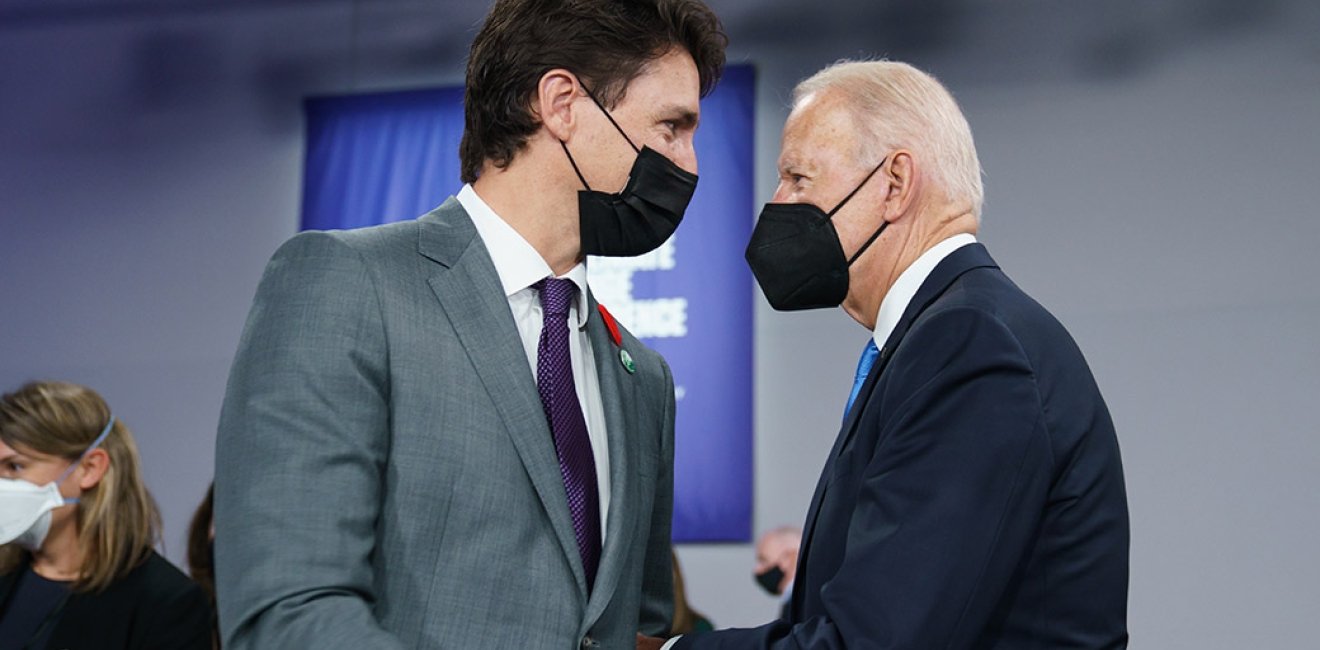On the one-year anniversary of his 2021 inauguration, many Canadians – politicians, officials, and citizens alike – declared their disappointment with the Biden administration’s approach to U.S.-Canada relations. The U.S. and Canada generally share perspectives on issues such as climate change, defence, relations with China and Russia, and the rule of law, but from the cancellation of the Keystone XL pipeline, to tax credits only for U.S.-manufactured electric vehicles, and across a range of other bilateral issues, the President’s first year has prioritized domestic political constituents.
But in itself, this should be no surprise. And despite the disappointment, Canada needs to understand that the relationship is a two-way street, by doing more to support the U.S. in the name of these shared values.
U.S. behaviour during the Trump administration definitely planted doubts and uncertainty about the durability of America’s global reengagement. This causes real headaches for a country like Canada, which relies on institutions to curb the worst excesses of hyperpowers. But there’s no realistic alternative model in view.
On the big global issues where we share a common outlook, Canada could be stepping up more in support of liberal democracy and, in particular, of U.S. leadership. Canada should be using its membership in the G7, G20, WTO, NATO, OECD and other organizations to advance open societies and markets. Domestic political constraints may circumscribe U.S. action, but it’s clear that efforts from allies such as Canada would be welcomed in Washington.
With its withdrawal from Afghanistan, the U.S. ceased to be involved in any major military conflict. The Biden White House has renewed support for the “Quad” in Asia (U.S.A., Japan, Australia, India) and NATO (after a singular lack of interest from the Trump administration). This could signify that rather than reverting to isolationism, America will simply be highly selective in determining its national security interests.
Canada and other U.S. allies were caught off-guard when the AUKUS strategic partnership was announced, between Australia, the U.K. and the United States. The significance of this move as a counter to China is uncontestable. Was Canada left out because AUKUS is formally about nuclear-powered submarines, of which we have none? Or did the U.S. conclude, notwithstanding official Canadian rhetoric, that Canada is unequipped to make a significant geostrategic contribution in the broader Pacific region? If the latter, that’s all the more reason for Canada to step up.
While Canada doesn’t often invest resources and political capital in advancing ideas for transformative change in the bilateral relationship, when we’ve done so, we’ve achieved great success, on files including the St. Lawrence Seaway, the Canada-U.S. Auto Pact, bilateral free trade, acid rain abatement, participation in NAFTA, and post-9/11 border management. On the multilateral front, we’ve also demonstrated value by mobilizing like-minded countries to drive progress on issues such as Venezuela, WTO reform and land mines.
Canada’s brand in the U.S. is strong; We are naturally suited to leading collaborative efforts on initiatives that could resonate with Americans. The question is whether we have what it takes to expend, on a priority (and continuing) basis, the efforts necessary to make a difference?
Maybe it’s time for Canada, in a concerted fashion, to try to sell the U.S. Administration, Congress, state governments, business and labour leaders, think tanks and other influencers on big-picture solutions to both bilateral irritants and common challenges. Forging an understanding among Americans of the value of collaboration is both a worthwhile and viable goal.
Sure, policy capacity within our government has withered. And yes, political leaders in both countries increasingly focus on crisis- and image-management. But the status quo portends an ever-downward trajectory in the relationship – a spiral that didn’t begin with Donald Trump and, absent comprehensive action, won’t end with Mr. Biden.
Canada should invest in the leadership critical to finding comprehensive and durable solutions to the issues that undermine the bilateral relationship we manage with the U.S. and to address global challenges. We’ve done it before. We can do it again.







